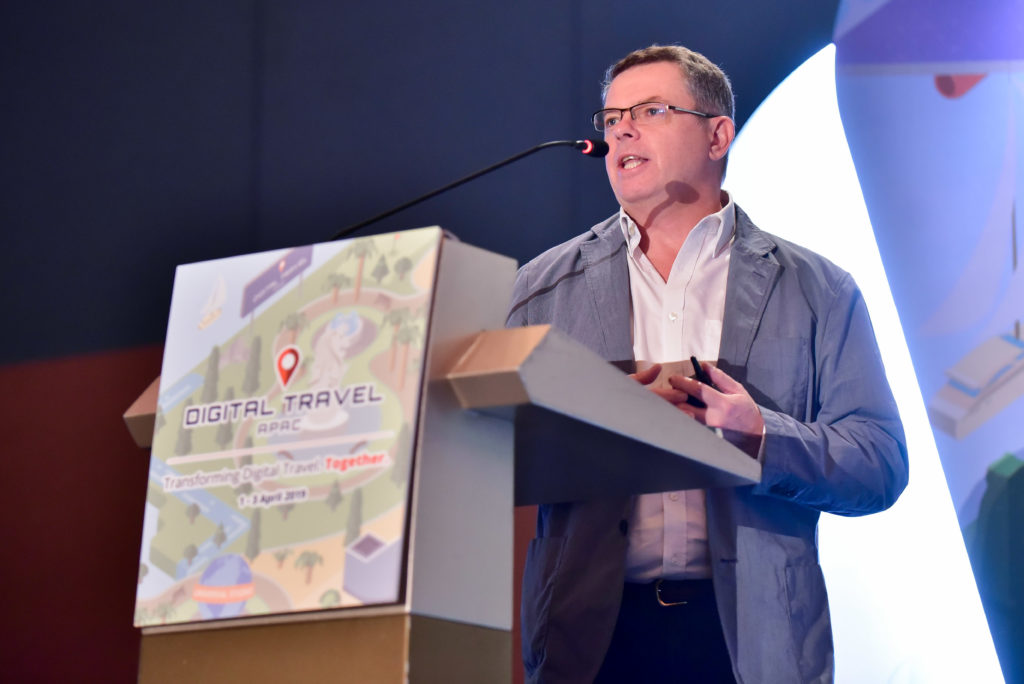Getting a 360-degree view of the customer with ADARA

Understanding the customer is the basic know-how for every company but we don’t have crystal balls to predict the minds of the clients. However, there is a company that can provide businesses with clairvoyant powers to get a 360-degree view of their customers.
I caught up with Jonathan Hardy, managing director for APAC, ADARA, at the Digital Travel Summit in Singapore and talked about how travel companies can gain predictive traveller intelligence, which is an understanding what the traveller might do next.
ADARA partners with travel suppliers to gather data and provide insights based on these data. “We have the ability to see users planning travel in real time. For example, if a traveller goes on an airline website we’re partnered with and starts searching for a flight for a specific destination, we already have the view that this user has entered the booking funnel and is now in the process of planning a trip. That creates a powerful signal from a marketing perspective as to all the potential purchases that may follow that associated with that trip,” Hardy explains to me.
“Data points are being collected around from an individual journey. We collate all those data points from all individual journeys and create a holistic view of the traveller behaviour of an individual user. This data will be sent to the supplier, which they can utilise to personalise their service.”
Hardy reveals, “travel data is predictable and you can see patterns. For example, they fly on business class, they stay on a luxury hotel – they’re likely to do that again.”
Personalising experience

Customer personalisation is a trend impacting all industries and all businesses have to react to customer expectations. In the airline industry, customer expectation is being driven by low-cost carriers. Therefore, there is a challenge for traditional carriers on how they will unbundle their offerings without cannibalising the full-service product.
The way they can do that is to use data to better understand who is a premium traveller, who has no problem paying that extra price point; and who is price sensitive, who is more open to a different proposition. Then, airlines can split the communication between these two segments.
While ADARA can provide all the data, airlines’ CRM technology must also adapt if they want to capitalise on these segments. There are third party companies that are offering systems that can manage the data and, most importantly, can connect to other digital communication platforms that are now being part of the integrated marketing stack.
There is an increasing expectation for every business or sector to personalise the experience. Amazon is a great example of understanding the customer – by knowing what you bought before, making recommendations based on your previous purchases, capturing your payment information, and making it easier to do repeat purchases. Netflix is also another example that shows content based on the preferences of the audience. That type of personalisation is becoming a norm in all industries.
Repeat behaviour

In travel, ADARA emphasises that there is a lot of repeat behaviour. You are requested to state your preferences, it should be pretty straightforward for companies to capture, retain, and utilise that information when you try to purchase again. Failing to do that will leave consumers frustrated and the travel suppliers that can get that right will start to gain a competitive advantage.
The Southeast Asian market is really interesting for the travel industry thanks to the fast-rising middle class and strong demand for travel. Hardy says, “We’re very excited about some of our analytics offerings. We also have a product aimed at the tourism industry called Impact – which allows tourism boards to measure their marketing effectiveness. Most tourism websites do not have e-commerce functionality. They can drive people to the website, but they are not able to see if a user actually visits the destination. ADARA can track all that digital content from all media channels and then see whether that user exposed to the content from the tourism board later searches for a flight to that destination or books a hotel in that destination.”


Comments are closed.